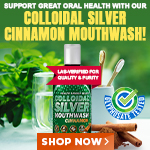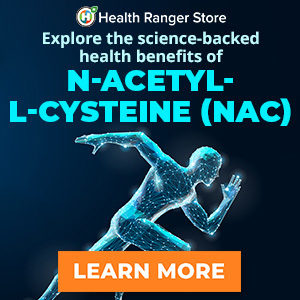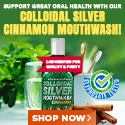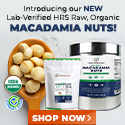Elderly folks with vitamin D deficiencies have double the risk of Alzheimer's
Sunday, June 26, 2016 by: J. D. Heyes
Tags: Alzheimer''s, vitamin D, sunshine

(NaturalNews) The most comprehensive study conducted on the subject found recently that vitamin D levels make a big difference when it comes to your risk of developing dementia.
In 2014, a multidisciplinary team of scientists and researchers from some of the finest universities and other institutions of higher learning from around the world, found evidence that elderly people who were severely lacking in vitamin D were more than twice as likely to develop Alzheimer's disease and other forms of dementia and mental capacity deficits, than those who had optimal and normal levels of the vitamin.
The study, published in the peer-reviewed journal Neurology, examined 1,658 adults who were 65 years of age or older. All study participants were deemed healthy and mentally normal at the start of the study, were able to get around without the assistance of a walker, and did not have heart disease.
Researchers studied the participants for six years, and paid particular attention to those who went on to develop some form of dementia, comparing vitamin D levels in all subjects. The researchers found a strong link between diminished vitamin D levels and the risk or onset of dementia. Among participants who were moderately deficient in the vitamin, for example, there was a 53 percent increased risk of general dementia. For Alzheimer's specifically, subjects suffering from moderate deficiency were 69 percent more likely to develop the condition than those with sufficient levels.
Make plans to attend the the upcoming FREE online Alzheimer's and Dementia Summit here.
For subjects deemed "severely deficient" – a range that is somewhere between 25 and 50 nanomoles per liter (nmol/L) of vitamin D – the risk was even more pronounced. The risk was 122 percent higher for Alzheimer's among test subjects with severe deficiencies. For general dementia the risk was even higher at 125 percent.
The scientists involved in the study thought ahead of time that they may see some link between low levels of vitamin D and dementia, but admitted after studying the results that they certainly had not anticipated the dramatic variance that was observed. They believe that their findings serve as a sort of wake-up call for millions of aging baby boomers who are already at risk for developing dementia and Alzheimer's.
"We expected to find an association between low Vitamin D levels and the risk of dementia and Alzheimer's disease, but the results were surprising -- we actually found that the association was twice as strong as we anticipated," said Dr. David Llewellyn from the University of Exeter Medical School, one of the study's authors.
That said, the findings of the study are hardly surprising, considering the multitude of benefits of vitamin D consumption. For instance, the Vitamin D Council lists 40 health conditions that modern research has confirmed are associated with lowered vitamin D levels – a condition that is easily preventable with exposure to sunlight, proper natural diet and supplementation.
"Clinical trials are now needed to establish whether eating foods such as oily fish or taking vitamin D supplements can delay or even prevent the onset of Alzheimer's disease and dementia," added Llewellyn. "Our findings are very encouraging, and even if a small number of people could benefit, this would have enormous public health implications given the devastating and costly nature of dementia."
Though stopping short of actually recommending that vitamin D supplementation be initiated along with increased sunlight exposure as a means of thwarting the onset of dementia and Alzheimer's, Dr. Doug Brown, the director of research and development at the Alzheimer's society, makes that connection.
"During this hottest of summers, hitting the beach for just 15 minutes of sunshine is enough to boost your vitamin D levels," he is quoted as saying by the University of Exeter.
Sign up now to attend the the upcoming FREE online Alzheimers and Dementia Summit!
Sources:
VitaminDCouncil.org
Exeter.ac.uk
ScienceWorldReport.com
Science.NaturalNews.com
Alzheimer''s at FETCH.news
Get independent news alerts on natural cures, food lab tests, cannabis medicine, science, robotics, drones, privacy and more.
Take Action: Support Natural News by linking to this article from your website
Permalink to this article:
Embed article link: (copy HTML code below):
Reprinting this article:
Non-commercial use OK, cite NaturalNews.com with clickable link.
Follow Natural News on Facebook, Twitter, Google Plus, and Pinterest
- Newly released JFK files reveal Pentagon's role in creating Lyme disease and covid in the same lab
- Trump's greatest betrayal so far: Accelerating Middle East wars, silencing dissent, and serving Zionist masters
- Trump nominates VACCINE ZEALOT Susan Monarez to lead the CDC, sidelining RFK Jr.'s reform efforts
- The hidden dangers in your kitchen: How cooking methods impact diabetes, cancer and aging
- STARDUST, a secretive Israeli-US startup, plans risky solar geoengineering experiment to BLOCK OUT THE SUN
- DEADLY DECEPTION: How COVID vaccines increased mortality rates and why authorities hid the truth
- CDC finally halts $11 billion COVID funding scam as health officials admit the ‘pandemic’ was a fraud
- Arkansas embraces medical freedom with landmark ivermectin law
- Home gardening for preppers: A beginner's guide to growing your own food
- Lab leak confirmed? Boris Johnson's stunning reversal on COVID origins sparks global debate
- Analysis: The coming economic collapse, a mass uprising and Trump's three secret weapons to halt the growing revolt
- The forgotten hormone hero: How vitamin C quietly balances mood, stress and reproductive health
- Festive flavors: The sweet history, nutritional profile and health benefits of pecan pie
- Elon Musk: Aliens could be here on Earth RIGHT NOW
- Dr. Mike Yeadon releases 15-minute testimony - WATCH - about genocidal intent of COVID “vaccines”
- YouTube’s double standard: CEO defends censorship while claiming free speech champion status
- California's social media censorship law struck down: A victory for free speech or a threat to online safety?
- Sugarcane extract superior to cholesterol-lowering drugs?
- Newly released JFK files reveal Pentagon's role in creating Lyme disease and covid in the same lab
- Elon Musk: Aliens could be here on Earth RIGHT NOW
- Reclaim your health: How midlife exercise reverses years of inactivity
- Trump reverses course on Gaza plan, says “nobody is expelling Palestinians”
- EPA advisor admits the agency is funneling billions to climate groups ahead of Trump’s return to White House
- Big Pharma's $8 Billion bribery scheme exposed: how doctors are pushed to prescribe junk science, not heal
- Space war brewing? Russia threatens to destroy Starlink satellites
- A lack of integrity in Academia: Harvard professor found GUILTY of fraudulent research to promote CRT theory
- Survival 101: Effective EMF blocking techniques
- Rep. Nancy Mace introduces bill to ban biological males from female facilities on federal property
- Mike Adams Sermon 66: God will DESTROY ISRAEL for its wickedness
- Pilots report mysterious lights 'moving at extreme speeds' across Oregon skies
- 5 Simple steps to boost your brainpower: How to strengthen executive function in a distracted world
- Historian warns Israel may be entering an “IRREMEDIABLE DECLINE”
- Florida takes a stand: DeSantis proposes permanent ban on mRNA vaccine mandates
- RFK Jr.'s SSRI antidepressant investigation sparks liberal meltdown, exposes Big Pharma's dangerous game
- OpenAI whistleblower who dissented against how the company trained ChatGPT found dead
- Sugarcane extract superior to cholesterol-lowering drugs?
- EPA advisor admits the agency is funneling billions to climate groups ahead of Trump’s return to White House
- The Health Ranger releases “Vaccine Zombie” song and music video, using AI-animated zombies for the music video
- California's social media censorship law struck down: A victory for free speech or a threat to online safety?
- Dr. Mike Yeadon releases 15-minute testimony - WATCH - about genocidal intent of COVID “vaccines”
- The pandemic as a tool for INDOCTRINATION: Understanding “The Indoctrinated Brain” by Dr. Michael Nehls
- Mike Adams releases country western hit single: Goin’ Back in Time is Comin’ Home
- Mike Adams releases music poetry sensation: A Child of God
- RFK Jr. clears key hurdle: Sen. Susan Collins backs controversial HHS nominee, signaling a new era for health policy
- Florida takes a stand: DeSantis proposes permanent ban on mRNA vaccine mandates
- Unpacking the Lies That We’ve Been Fed – new song and music video released by Mike Adams, the Health Ranger
- Mike Adams releases new song and music video: Nothing More Disgusting Than a Globalist
- Congratulations to the FULLY UNVACCINATED as you resisted the COVID-19 PROPAGANDA MACHINE fueled by over $100 BILLION
- “Why we influenced the 2020 elections”: Facebook files reveal the coordinated effort to bury the Hunter Biden laptop story
- Michigan sheriff announces criminal investigation into 2020 election crimes, Dominion Voting Systems
- Israeli soldiers accused of even more torture and abuse in the West Bank
- Migrants are taking advantage of recent hurricanes to scam residents and loot their homes
- House Intelligence Committee calls for the ARREST and PROSECUTION of Dr. Anthony Fauci
- Peter Rost exposes Big Pharma corruption in his book “The Whistleblower: Confessions of a Healthcare Hitman”
- Red Cross issues warning to stop blood plasma donations from vaccinated people
- Scientists confirm: GENIUS brain function can be spontaneously unleashed in humans without any apparent cause
- EPA advisor admits the agency is funneling billions to climate groups ahead of Trump’s return to White House
- HYSSOP: What research reveals about the health benefits of this ancient holy herb
- Two containers with completed ballots fall out of truck in Florida
- Fully vaccinated about to see “tsunami” of illness and death, warns virologist
- Global leaders unite to clamp down on “misinformation” with UN-backed Cascais Declaration
- BREAKING: 2025 NDAA authorizes mandatory military draft of WOMEN across America… as Pentagon pursues global NUCLEAR war with both Russia and China at the same time
- Michael Yon warns of a ZIONIST TAKEOVER in Trump’s second administration
- BOMBSHELL: DNA testing kits are a SCAM to develop ethnic-specific bioweapons
- Ozempic and Wegovy weight loss drugs are injectable LIZARD VENOM PEPTIDES that may unleash a devastating wave of organ failure… side effects align with symptoms of SNAKE BITES
- Israeli soldiers accused of even more torture and abuse in the West Bank
- These 13 countries just signed an agreement to engineer a global FAMINE by destroying food supply
- NASA admits that climate change occurs because of changes in Earth’s solar orbit, and NOT because of SUVs and fossil fuels
- RFK Jr. clears key hurdle: Sen. Susan Collins backs controversial HHS nominee, signaling a new era for health policy
- Sermon 30: How Jesus reveals Caesar’s FAKE CURRENCY and FALSE AUTHORITY
- Coriander seeds: Ancient medicine backed by modern science
- Arizona officials claim Maricopa County needs 10-13 days to tabulate results of the election
Science News & Studies
Medicine News and Information
Food News & Studies
Health News & Studies
Herbs News & Information
Pollution News & Studies
Cancer News & Studies
Climate News & Studies
Survival News & Information
Gear News & Information
News covering technology, stocks, hackers, and more



"Big Tech and mainstream media are constantly trying to silence the independent voices that dare to bring you the truth about toxic food ingredients, dangerous medications and the failed, fraudulent science of the profit-driven medical establishment.
Email is one of the best ways to make sure you stay informed, without the censorship of the tech giants (Google, Apple, Facebook, Twitter, YouTube, etc.). Stay informed and you'll even likely learn information that may help save your own life."
–The Health Ranger, Mike Adams












































